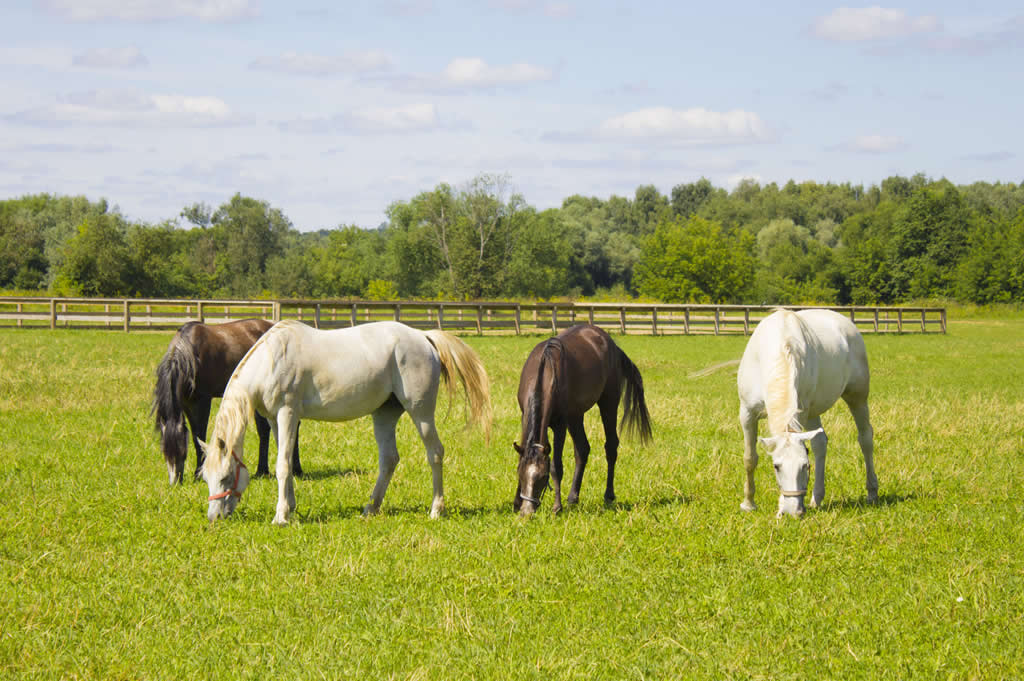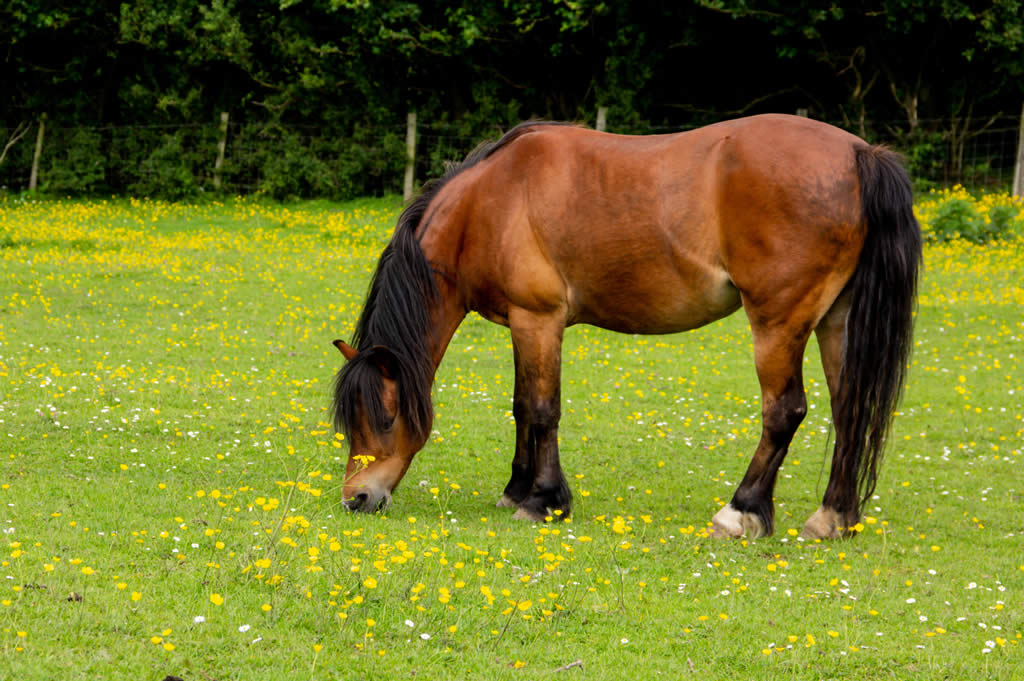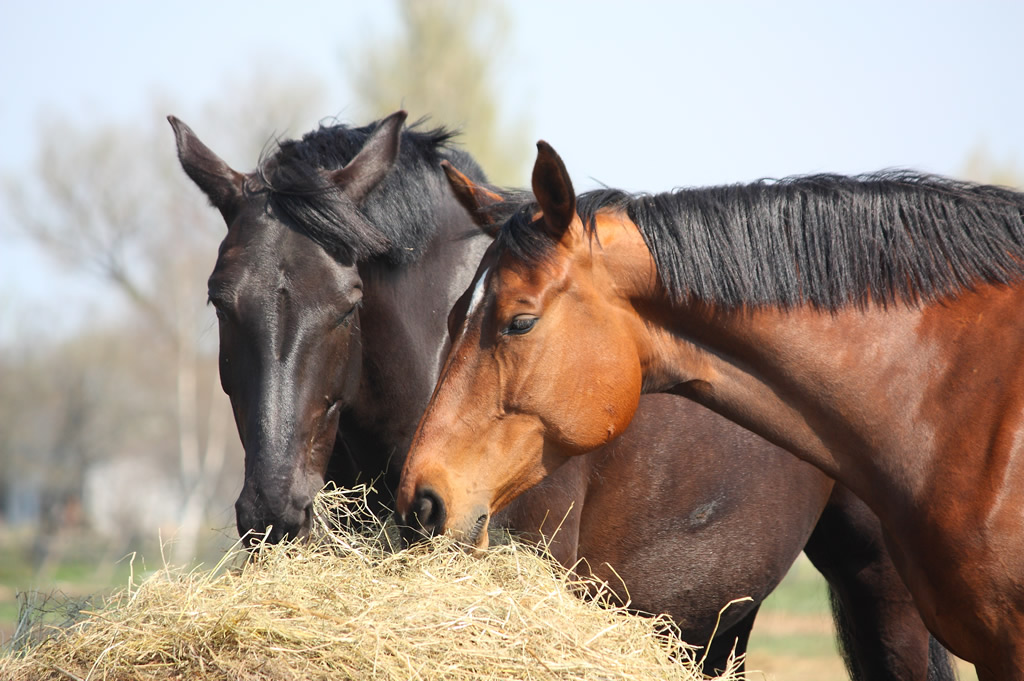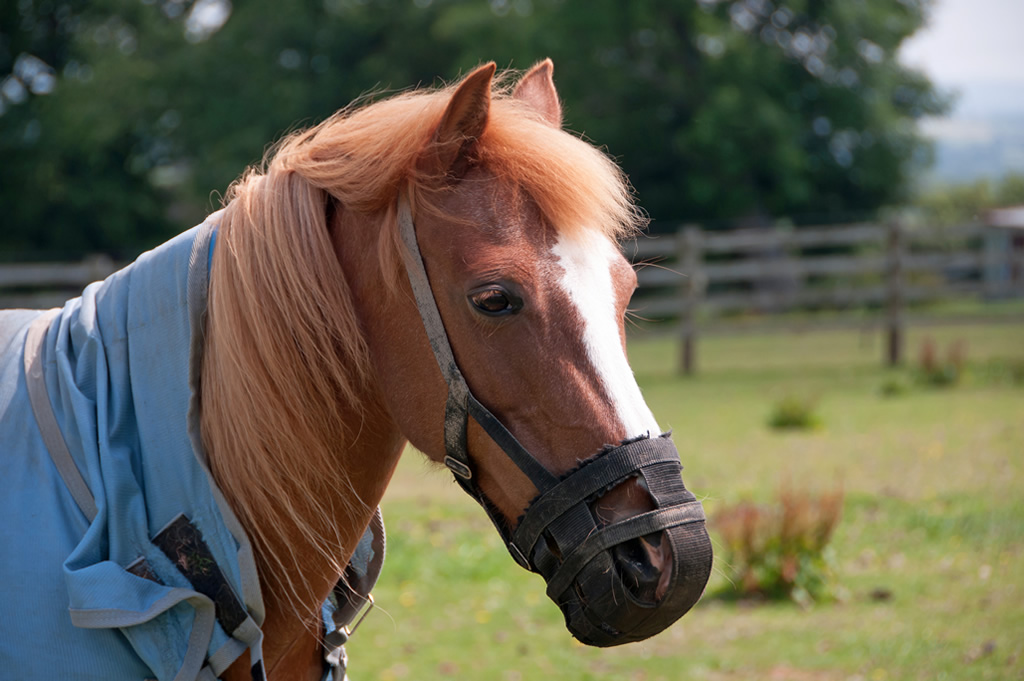
Obesity in horses and ponies is increasingly problematic in the UK with studies suggesting up to 85% of pleasure horses are overweight! Being overweight can have serious health implications for your horse, affecting their wellbeing, quality of life and putting them at a higher risk of a number of health problems. Obesity can cause respiratory issues, metabolic problems as well as an unnecessary strain on joints & tendons. Excess weight is also one of the most common triggers of laminitis in horses. It can be really challenging to recognise what a healthy condition looks like, that’s why at The Insurance Emporium we’ve prepared this helpful guide to help you keep your equine friends at a healthy weight!
How To Tell If Your Horse Is Overweight?
With such a wide variety of horses and ponies, there’s no one size fits all when it comes to your horse’s health. The ideal weight for your horse will depend on a number of factors including breed, age, height, level of work and any health issues they have. If in doubt, consult your vet who will be able to give you advice on the optimal target weight for your horse.
It’s really important to regularly monitor the weight and body condition of your horse. By monitoring your horse regularly, you can easily spot any weight fluctuations or changes in their health condition. Body condition scoring can be a great tool to help you to identify the optimal weight of your horse and allow you to see any unwanted pounds creeping on.
Why Has My Horse Put Weight On?
Horses gain weight for exactly the same reason as us — Too much food and too little exercise!
Historically, horses evolved to be free-roaming grazers, but as domesticated animals, they often consume high-starch, high-concentrate grain feeds at set times with controlled grazing access. And that’s not even mentioning the calorific, high sugar treats we love to feed them! In addition to interfering with their eating habits, we primarily use horses for recreation which can limit the amount of exercise they are getting.
It really is as simple as that – by allowing your horse to consume more calories than required for the work they are doing, horses will put weight on!

How Can Weight Impact Your Horse’s Health?
Excessive weight on your horse stresses almost all their body systems with serious implications such as reduced life span.
More specifically, an overweight horse may suffer with:
– Increased stress on their heart and lungs
– A tendency toward lethargy and becoming easily fatigued.
– Increased risk of injury due to poor conditioning
– Greater strain on their hooves, joints, muscles, and limbs, putting them at risk for ligament and tendon injuries and laminitis
– Increased risk of developing arthritis
– Impeded bone growth and increased risk of developmental orthopaedic complications
– Reduced fitness and performance ability
– Increased risk of developing Cushing’s syndrome and equine metabolic syndrome
What Can You Do to Help Reduce Their Weight?
Whilst getting excess weight off can be difficult, achieving the right weight and a healthy body condition for your horse is possible! Here’s a few things you may want to try:

Tweak Their Diet
To achieve steady weight loss, you should be feeding your horse no more than 1.5% of their body weight per day. This includes all grass, hay, chaff and other feed. During the weight loss period, a combination of hay and low-calorie chaff should make up the bulk of your horse’s diet. You can also lower the energy content of good quality hay by soaking it for 12hrs beforehand. A vitamin and mineral supplement may also be helpful. Last but not least, limit those goodies! Your horse will still love you without the handfuls of treats, we promise!
Limit Grazing Time
If you’re worried about your horse overgrazing, it’s important to restrict their access and keep them away from grass at certain times. Limiting the number of grazing or turnout hours can reduce their daily calories, alternatively, wearing a grazing muzzle can also help reduce your horse’s grass intake. If your horse is already getting enough calories from grass, you might want to think about reducing any extra hay or supplemental feed you give them.

More Exercise
Exercise is an important part of your horse’s weight loss plan. This doesn’t have to be ridden exercise, you just need get them moving. Lunging, long reining, loose schooling or hand walking can all be beneficial for getting them fit. Remember to start slow and build up your activity sessions whilst they build up their fitness levels.
Monitor Their Weight
Measure your horse’s weight and body condition score on a regular basis so that you can monitor progress. It may be helpful to take photos and keep a record to track weight loss! A BCS score of ‘Good’ or ‘Moderate’ will be a good indication as to when your horse has achieved their optimal weight. If you are unsure of your horse’s optimal target weight, consult with your vet who can help you.
Keeping your equine friends at their ideal weight is never easy, but with the right tools and management it is possible. If your horse has unintentionally gained weight this year, we hope this guide has helped. Remember, healthy weight loss should be gradual so remember to be patient! When tackling weight loss, make sure your horse has a steady supply of food to keep them healthy and look to find ways to reduce the calories rather than cutting down on quantity. Regularly check your horse’s body weight and if you’re concerned about your horse’s diet or health, get in touch with your vet who will be able to give you advice. As a horse owner, we know you want to do all you can to keep your equine friend in perfect condition, and taking out horse insurance can help to protect them in the event of the unexpected. At The Insurance Emporium, our Defaqto 5 Star Rated Horse Insurance includes over for Death, Theft Or Straying as standard. You can then customise your policy with our Optional Benefit. Visit our product pages to find out more!
All content provided on this blog is for informational purposes only. We make no representations as to the accuracy or completeness of any information on this site or found by following any link on this site. We will not be liable for any errors or omissions in this information nor for the availability of this information. We will not be liable for any loss, injury or damage arising from the display or use of this information. This policy is subject to change at any time.


